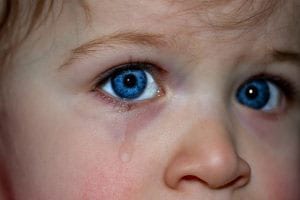Biogen Inc. has provided updates on their research into Spinraza® (nusinersen) in infants with spinal muscular atrophy. At the moment, Sprinraza is the only approved treatment for the condition. Data from their study was presented at the World Muscle Society’s 23rd Annual Congress, which was held in Argentina. You can find out more about these results at the source press release here, at Biogen’s website.
About Spinal Muscular Atrophy
Spinal muscular atrophy (SMA) is a serious genetic neuromuscular disorder that causes progressive muscle weakness and wasting. There are multiple forms of SMA, and the most frequent are Types 1, 2, 3, and 4, each of which typically begins at different ages. There is a spectrum of how severely people are affected by SMA. Type 1 is considered to be the most severe form of the disorder, and, if left untreated, infants with Type 1 SMA have a life expectancy of under two years. According to this paper, SMA has an estimated incidence of one in 10,000 people.
The NURTURE Study
The NURTURE study is an on-going open-label study of Spinraza in twenty-five infants who began treatment while pre-symptomatic, but have been genetically diagnosed with SMA and are likely to develop Types 1, 2, or 3. It is designed to evaluate the safety and effectiveness of the drug. Interim data from the study has recently been released, and it shows encouraging results.
As of May this year, all of the children taking part in the study are alive, and none need permanent ventilation. All twenty-five are also sitting independently, and 88% are able to walk (either with or without assistance) – two major motor milestones. Dr Farwell from Biogen says of the results, “Spinraza has the potential to dramatically change the course of SMA.”
Research into Biomarkers
In addition to data from the NURTURE study, Biogen also provided an update on their research into SMA biomarkers at the World Muscle Society’s Annual Congress. A study compared levels of a potential biomarker – phosphorylated neurofilament heavy chain (pNF-H) – in the plasma of over three hundred patients taking part in Spinraza clinical trials to those in a control group of people who don’t have SMA. The comparison showed that patients with SMA who are treated with Spinraza show a reduction in their plasma pNF-H to similar levels as the control group. According to Biogen, pNF-H may have the potential to be used as a biomarker to help researchers understand SMA.
People in the US can find out more about Spinraza (nusinersen) by clicking here.






